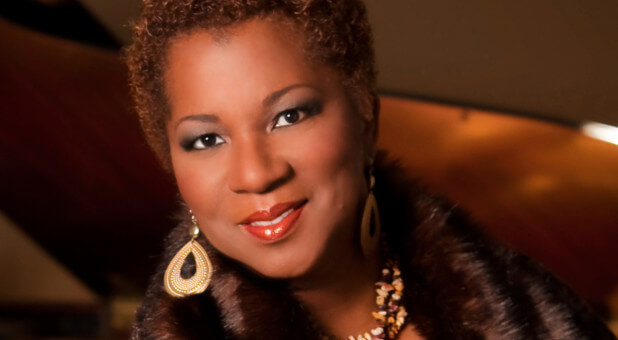Because of the music ministry with which God has blessed me, I have had the privilege of worshiping in countless churches. I have praised the Lord with people of numerous races and denominations. As a result of my experiences, I have come to the conclusion that, regardless of doctrinal differences, racial preferences and varying worship styles, the body of Christ has more in common than it has differences.
Time and time again, I have seen the love of Christ as it has been demonstrated to the lost and hurting. I have seen the church in action as its members became agents of healing and wholeness.
But I have also seen the church take its eyes off those things that bring us together and begin to concentrate on the things that divide and separate us. I imagine that is how different denominations got started.
I have nothing against denominations. But I believe that many times the sign on the church door tends to keep people out rather than invite them in.
Let’s imagine that the leper who was cleansed and healed when Jesus stretched forth His hand (see Luke 5:12-13) went out and started a church after his miraculous healing. Suppose he called the church The First Church of the Stretched-Out Hand. His congregants believed that the only way a person could be healed was for Jesus to stretch out His hand toward them.
Assume that the centurion in Capernaum, whose servant Jesus healed by merely sending the word (see Luke 7:1-10), also started a church–this one called The First Church of the Sent Word. His congregants believed that the only way a person could be healed was for Jesus to send His word.
These two churches were in neighboring cities and could have enjoyed wonderful times of fellowship together. They could have celebrated the fact that there were people in both churches who had personally encountered Jesus Christ–and that because of those encounters, many others had come to a saving knowledge of Christ. But instead they chose to build up denominational walls and become divided over the issue of healing.
This imaginary scenario may be an exaggeration of the way things truly are, but the point is that the church must not allow prejudice and preference to create division. We must learn to celebrate diversity, especially in worship.
CULTURAL DIVERSITY I have learned that much of our worship experience is cultural. And I have never seen culture more clearly defined than in the church.
Take my father’s church. In this black Baptist church, the singing was loud. The preaching was loud. The hand clapping and foot stomping were loud. People said, “If it’s not loud, it’s not church.”
My father was the finest preacher and Bible teacher I have ever heard. He believed every word of the Bible and communicated each of his points with power and conviction. But often during the sermon, the congregation would begin to shout in agreement, and the organist and the drummer would echo back in a rhythmic pulse. The worship service would grow louder and louder–so loud, in fact, that I could hardly hear a word my father said.
On the other hand, I’ve been in countless conservative white churches where no one said amen, no one clapped his hands, and the organist never played anything that wasn’t written in the hymnal. Every part of the worship service was calculated, with no room for spontaneity.
Often, the sermons delivered by the white preachers in these conservative white churches were powerful and deserved plenty of amens. Still the congregation sat quietly and attentively in their pews without uttering a word.
The contrast between the two cultures is stark. But recently I have begun to see something wonderful happening as believers of different backgrounds worship together, both in church and at my concerts. Those members of the body of Christ who enjoy a free and liberated worship style are giving permission to the conservative members to enjoy themselves in the Lord. The quiet, reserved members are feeling free to respond. They clap their hands and say amen with reckless abandon.
At the same time, our quiet, reserved brothers and sisters are giving permission to the loud, liberated members of the body to sit quietly and listen. It is an awesome sight to see those who once said amen as if on cue sit in tearful reflection and ponder God’s goodness.
The key word is balance. Neither group has a monopoly on worship. There is a place for emotional display, and there is a place for the intellectual approach.
As we worship together more and more, we must begin to appreciate and even learn from what other races and cultures can bring to the worship experience. If we are serious about reconciliation, we must be willing to accept each other’s culture and worship experience as legitimate.











































